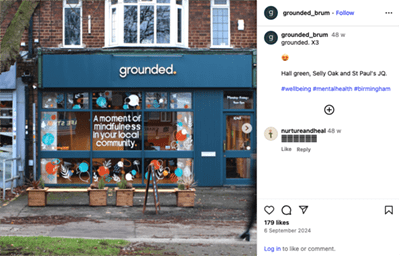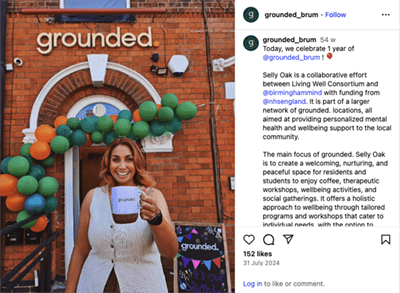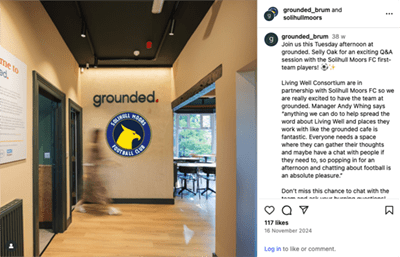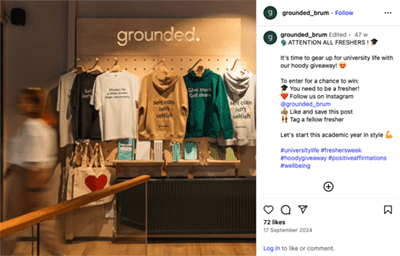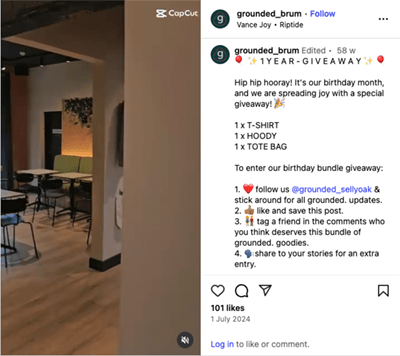Who are the Living Well Group?
The Living Well Group is made up of two organisations – Living Well UK (LWUK) and Living Well Consortium (LWC).
Living Well Consortium is the West Midlands’ leading mental health consortium, which consists of over 40 VCFSE (Voluntary, Community, Faith and Social Enterprise) mental health organisations. These Consortium Members work in a cross-collaborative way to ensure that those who are looking for ways to access mental health and wellbeing support can do so efficiently.
LWC works to relieve the pressure felt by the NHS, by delivering community-based services that focus on prevention, wellness, recovery, and resilience, in turn building a more sustainable and long-lasting solution.
Living Well UK is the public-facing charity that brings the work of the Consortium Members to the people of the West Midlands. This charity arm provides free mental health and wellbeing support to people living in Birmingham and Solihull.
Meet our Board Members
Living Well UK Board

Louise McKiernann, MBA
Board Chair Living Well UK
Director Disability Resource Centre
Louise Mckiernan is Chief Executive of the Disability Resource Centre; one of the leading disability organisations operating in Birmingham, Solihull
and the wider West Midlands that provide a range of services to disabled people, frail older people, and those with long term health conditions.
This includes not only individuals with mental ill health but also those presenting with poor mental health as a result of their impairment or health condition.
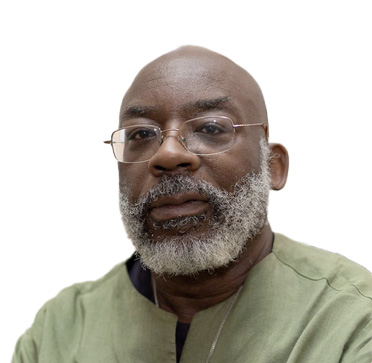
Davy Hay
Co-founder of Pattigift Therapy
Davy is the Co-Founder of Pattigift Therapy CIC, an African-centred psychological therapies organisation based in Birmingham.
With a background in mental health, he has worked as a nurse across inpatients, community liaison, elderly care, and substance misuse, as well as a mental health lecturer.
He holds a degree in Nursing and Mental Health and a Postgraduate qualification as a Specialist Mental Health Practitioner. His career has taken him across the UK, the Caribbean, and Saudi Arabia.
After 25 years in the NHS, Davy founded Pattigift Therapy — the first independent mental health hospital focused on the cultural and psychological needs of people of African heritage.
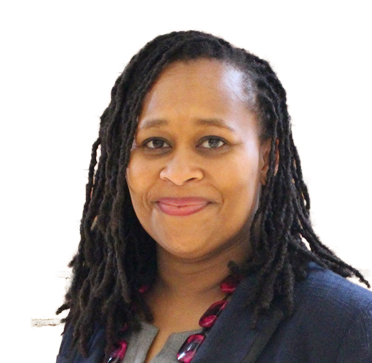
Jennifer Jones-Rigby
CEO Bethel Health & Healing Network
Jennifer is the CEO of Bethel Health & Healing Network and has over 30 years’ experience in the community health and wellbeing sector. As CEO, she leads dedicated teams and volunteers who support some of the most vulnerable pregnant women across Birmingham, Solihull, and parts of the Black Country.
The service provides essential support with birth planning, birth attendance, and structured nutrition and health guidance for women who may be hesitant to access services and who face challenging statistics regarding their survival during pregnancy, childbirth, and the postnatal period.

Lovemore Kalibe Masiane
Clinical Lead and CBT & EMDR Therapist at Our
Roots CIC
Lovemore Kalibe Masiane is a dedicated mental health professional with a longstanding commitment to supporting others. With a background in education and community work, he began as a teacher and mentor, empowering young people and adults across diverse settings.
Lovemore joined the Living Well Consortium in 2016 as a locum supervisor, and in 2017 became Clinical Lead at Our Roots CIC. His leadership evolved into the role of Operations and Clinical Executive, where he played a key role in developing a progressive NHS Talking Therapies service delivered through the Consortium.
Living Well Consortium Board

Martin Hogg
Board Chair Living Well Consortium
CEO of Citizen Coaching
Martin leads a team of over 40 counsellors and therapists who deliver more than 8000 counselling sessions a year to people in Birmingham.
A counsellor and coach himself, Martin founded Citizen Coaching in 2005 to address the lack of affordable counselling options in the city, and to provide early-stage anger management interventions to adults and young people whose anger is causing them problems in their lives.

Amra Dautovic
Managing Director for Waythrough
Amra is the National Lead for Domestic Abuse in the Richmond Fellowship (RF), a national mental health charity. RF has been working with individuals, families and communities to make recovery a reality for over 60 years.
Amra works across England primarily leading services in London and Birmingham that tackle domestic abuse and support mental health.

Louise McKiernan, MBA
Director Disability Resource Centre
Louise Mckiernan is Chief Executive of the Disability Resource Centre; one of the leading disability organisations operating in Birmingham, Solihull and the wider West Midlands providing a range of services to disabled people, frail older people, and those with long term health conditions.
This includes not only individuals with mental ill health but also those presenting with poor mental health as a result of their impairment or health condition.
Louise is also the Board Chair of Living Well UK.
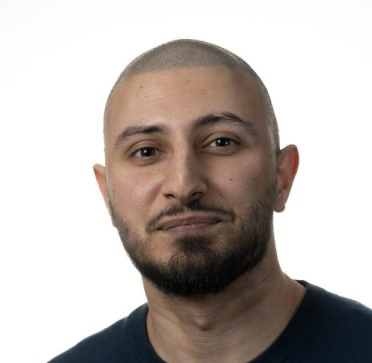
Shahid Zaman
Operation Director for Cognitive Wellness
Shahid is an emerging leader in mental health services, serving as the Co-Founder and Director of Cognitive Wellness. At the helm of this innovative organisation, Shahid leads a dedicated team of 18 skilled therapists, including specialists in Low-Intensity and High-Intensity CBT, EMDR therapies, and counselling, as well as practitioners addressing long- term conditions.
Under his leadership, Cognitive Wellness delivers comprehensive mental health support to approximately 2,400 clients each year and provides over 10,000 hours of therapy annually.
NHS Talking Therapies
LWC is contracted to provide counselling and psychological therapy services as part of the national NHS Talking Therapies programme.
The clinical team works in collaboration with LWC Members to deliver a wide range of treatments to clients over the age of 11 in Birmingham and Solihull.
LWC is the only VCFSE delivery partner across Birmingham and Solihull.
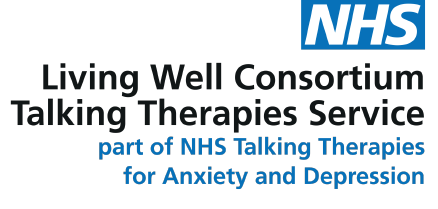
Cognitive Behavioural
Therapy
Walking
Therapy
Interpersonal
Therapy
Counselling for Depression
Couples Counselling for Depression
Long Term Conditions
*PEQ refers to the Patient Experience Questionnaire
Age breakdown:
- Over 26 62.1%
- 16 – 25 28.5%
- 11 - 15 9.4%
Referrals by month
- April
- May
- June
- July
- August
- Septemebr
- October
- November
- December
- February
- March
Children and Young People
LWC have been commissioned to support Children and Young People since 2022. Our service provides a range of talking therapies and mental health support tailored for young people aged 11-25.
CYP Groups
LWC has been hugely successful in launching its CYP group therapy sessions, where service users are able to come together, engage with others going through similar experiences, share their perspectives and develop new ways of coping and learning.

Dialectical Behavioural Therapy (DBT) Skills
Dialectical Behavioural Therapy is a combination of skills and strategies that work together to help with regulating emotions and withstanding distress without impulsivity.
9 weekly group meetings are held online for teens aged 11 to 16.

Simon Davies
BACP registered Counsellor

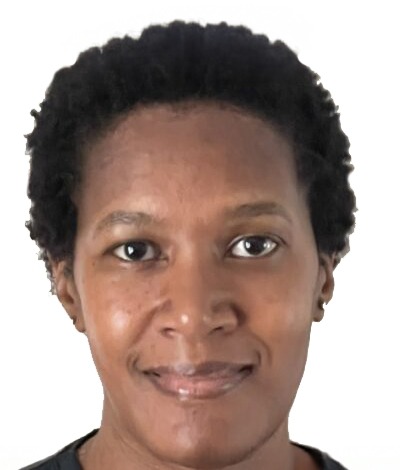
Maria Forde
CYP Counsellor
Coping with Low Mood and Self-Harm
8 weekly workshops have been created for teens aged 11 to 16 who are finding it tough to cope with self-harming behaviours and low mood.
The group provides a safe, supportive, and confidential space where young people can explore the underlying emotions and triggers related to self-harm, develop healthier coping strategies, and build resilience.
Coming soon – Autism Confidence
Helping neurodivergent young people build self-esteem and resilience created in response to a rising number of children and young people with ASD needing support.


Case study
When Alex* (a 15 year old boy) started therapy, he was really struggling. He’d stopped going to school, didn’t have any structure to his day, and spent most of his time alone, overthinking and doing rituals to try and feel better, but they just made things worse. He felt his anxiety and OCD had taken over. He felt stuck and didn’t know how to move forward.
Working with Jackie at Living Well Consortium helped Alex to understand what was going on in his brain and body. They discussed Alex’s experiences, the impact his mental health was having on his day-to-day life, and identified activities and patterns that made him feel worse. Together, they created a daily plan that focused on things that gave him joy or a sense of achievement. He started spending time in the garden playing football and doing tricks on the trampoline.
As things improved, Alex started going to the gym, returned to school and started a new relationship. With these positive changes came new worries, causing Alex to overthink and stress. Therapy helped him identify that he was catastrophising, assuming the worst and jumping to conclusions. He learned practical strategies for calming anxious thoughts and how to pause and breathe before reacting to them.
Alex is still working on reducing OCD rituals and managing his thoughts instead of letting them control him, especially during exams. But now he has a plan, goals, tools that help, a better routine, and more self-confidence. Alex feels he has gotten his life back, and for the first time in a while, is excited about what’s next.
*Name changed for anonymity.
Employment Support at LWC
LWC’s skilled Employment Advisers provide the following support and guidance to empower individuals to achieve their employment goals.
The support includes:
- Guidance on Reasonable Adjustments
- CV Building
- Interview Skills
- Work Experience
- Training Opportunities
- Guidance on Flexible Working
- Support Finding New Employment

Delivered by Citizen Coaching and Counselling, Our Roots and Waythrough


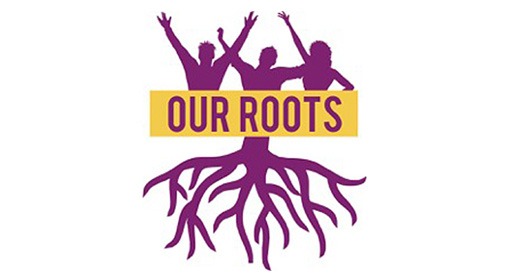
The Impact of Employment Services this year
Case study

The Employment Adviser supported James in creating a Wellness Action Plan that outlined how he could stay mentally healthy at work, and how other members of staff could support him during his return. At his ‘back to work’ meetings with his Head Teacher, James chose to share the Wellbeing Plan. He went back to work full time in September, and felt the transition went well, made easier by the plan that they refer back to regularly.

Selma* was looking to return to work after being at home raising her family for many years. To prepare her for re-entering the workforce, the Employment Adviser did a CV review, discussed transferable skills and how to effectively search for a job.
When she found a job advertisement they wanted to apply for, the Advisor encouraged them to apply and, when they secured an interview for the role, prepared them with a mock interview. In their final session, Selma had received wonderful news that they were successful and were offered the role!

West Midlands Bus Scheme
This year, 43 clients received 1-month, 3-month, or 12-month bus passes, allowing them to use buses across the West Midlands at no cost. This support enabled clients accessing Employment Support to attend work-related activities such as interviews, tribunals, and meetings with employers and advisors.
This scheme was delivered in partnership with Transport for West Midlands.
Mental Health Connecters
The Neighbourhood Mental Health Team (NMHT) is part of a mental health transformation project within Birmingham and Solihull. Mental Health Connectors from Living Well Consortium, Birmingham Mind and Better Pathways are placed in GPs throughout the area.
The service is designed to improve access to mental health and wellbeing services by reducing the confusion about where people can get assistance and by helping people access support services in their community. These services include psychological therapies, improved physical health care, employment support, personalised and trauma-informed care, medicine management, and support for self-harm and coexisting substance use.
This year, this service has helped over 1000 people access support, with over 2500 sessions delivered.
In partnership with
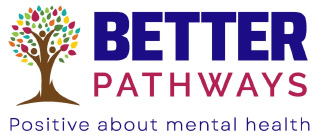

LWC’s Mental Health Connecters



Green Spaces Exhibition
As part of their 60th anniversary, the Ikon Gallery and Living Well Consortium collaborated to commission artist Jaskirt Dhaliwal-Boora to create new work with Erdington communities.
Focusing on the impact and importance that green spaces have on mental health, Dhaliwal-Boora worked with participants in Erdington to explore their personal connections to parks, gardens and urban green areas.
Of the project, the artist said “Green Spaces is a celebration of what it means for these seven individuals to be from or discover Erdington anew, and how we can immerse ourselves in nature, to uplift and hold us, to piece us back together. Nature has a way to heal and calm the mind, the camera can be used as a tool to observe and treasure what’s around us, words can express how we feel.”
This exhibition is now on display at grounded. Hall Green permanently.
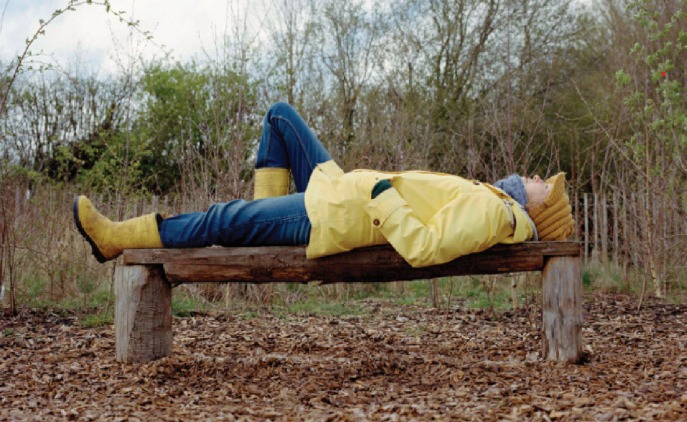

Limbic Case Study
LWC worked with Limbic to publish a study showing how services have been impacted by the implementation of Limbic Access.
Limbic Access is a conversational chatbot that sits on the LWC website and guides the service user through making a self-referral. It is available to clients 24/7 and uses AI technology to identify the client’s primary presenting problem and risk levels.
Over the 1 year that this tool has been live, LWC has achieved incredibly successful results, particularly with regard to data quality and patient engagement.For more information,
and to read the full study
click here
Clients can self-refer using Limbic on our website, with or without the help of a professional.


In 2023, we opened the first of our wellbeing cafes known as grounded.
2024 saw the continued success of grounded. Selly Oak and grounded.
Hall Green, as well as opening of grounded. St Pauls.

grounded. St Paul’s is the third and newest addition to the grounded. group.
More than just a café, grounded. is a mental health and wellbeing hub created by the Living Well Consortium. The St Paul’s site provides a calm, welcoming environment where Birmingham residents can access Talking Therapies in a space that feels warm and non-clinical.
The heart of grounded. St Paul’s lies in its unique dual-purpose design: a comforting space for both visitors and practitioners. Alongside our cosy café and therapy rooms, we’ve created a dedicated staff wellbeing space – a place for Practitioners to pause, recharge, and reflect between appointments.
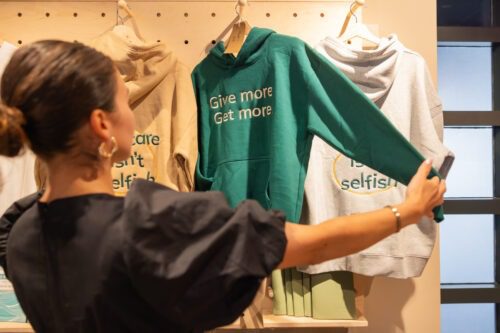
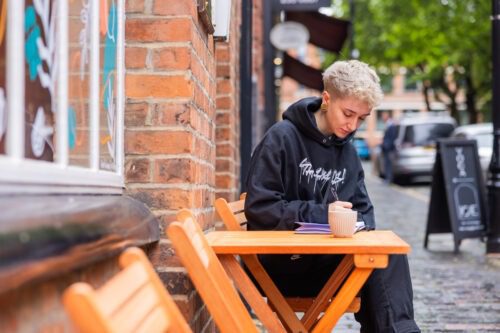
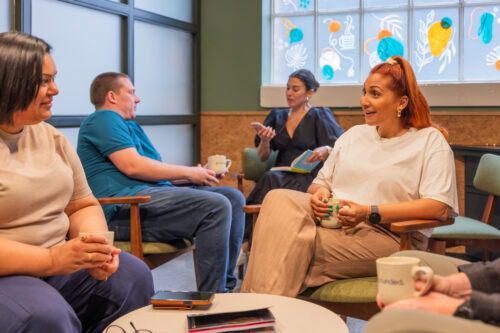
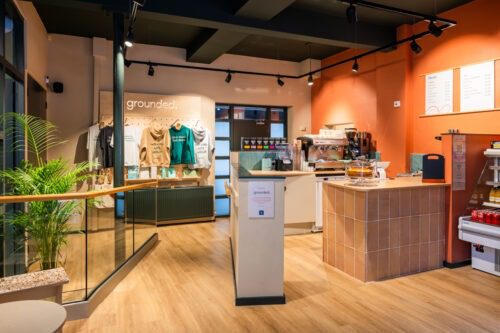
In Partnership With


This year, grounded. Selly Oak has continued its support of the local community through prevention and intervention. Over 11,000 customers accessed the café and its services, including ethical and delicious coffee, served by social enterprise Evolve, and our varied programme of wellbeing workshops.
3 nights per week, Birmingham Mind run a crisis drop-in service called ‘Talking Spaces.’ This service aims to support anyone in need of assistance or going through a mental health crisis outside of regular hours. 412 people accessed this service this year, getting support ranging from face-to-face wellbeing interventions to clinical support.

grounded. Hall Green has continued to offer vital support and build relationships in an area with some of the lowest numbers of people seeking mental health support in the region.
In the past year, 668 referrals for mental health support were made at this location, leading to people accessing the support they need. Additionally, 392 people attended wellbeing programmes, which included Yoga, Crafternoons, Chai and Chat and Chair Dancing.
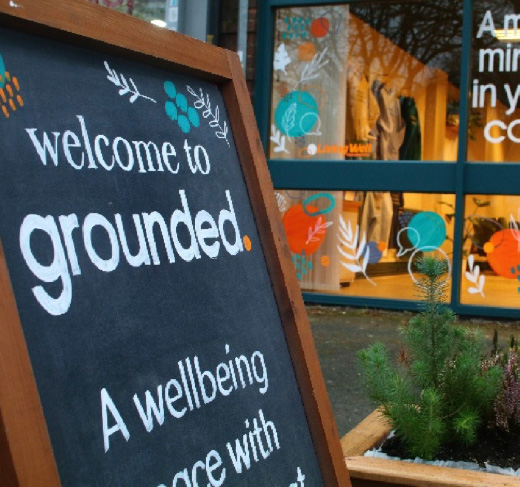



DIATOMIC
The DIATOMIC Programme is aimed to support organisations within the mental health and wellbeing sector. There was a specific focus on empowering businesses led by ethnic minorities, women, and/or individuals with disabilities, with a strong emphasis on fostering innovative and economic growth within the East Birmingham area.
Where possible, the ultimate goal is to support the organisations with gaining direct market access by creating opportunities that facilitate market entry, enable income generation, promote growth, and encourage social and technical innovation. The programme also seeks to reduce grant dependency, which often hinders growth, particularly in the social economy sector.
Over 80 organisations applied and 2 cohorts of 10 were selected to attend a series of workshops. These included information on Accessing Grants and Funding, HR, Information Governance, Marketing and the NHS Talking Therapies Service. The participants also received mentoring from experts at LWC.
At the end of the sessions, all organisations were either “Satisfied” or “Very Satisfied” with the information they received during the workshops, and on average, they scored the experience 4.57/5 stars.




Our Grants Team
Funded by:

Reaching Communities
LWUK are currently running a 2-year programme aimed at supporting the mental health and wellbeing of Children and Young People aged 5-17 years. These sessions are delivered 4 times a week in Erdington, Balsall Heath and in temporary accommodation.
Attendees are offered a wide range of activities, including sports, crafts, yoga, mindfulness and workshops on topics such as anxiety, sleep and motivation.
So far, these sessions have been attended by over 1400 children and young people of varied ages from a diverse range of backgrounds.
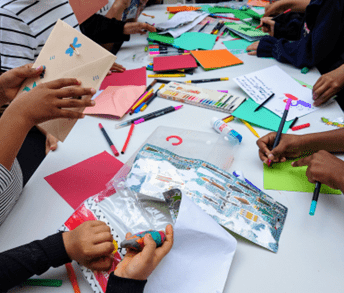
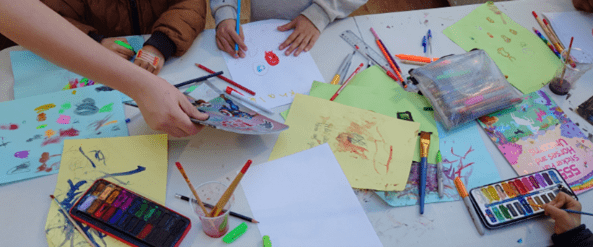
In partnership with


Tennis Got Served
In partnership with Matt Hillman Tennis, LWUK offered free tennis sessions twice a week to young people living in temporary accommodation.
The project aimed to improve physical and mental health, increase confidence, reduce social isolation, and promote community development.
So far, these sessions had been attended by over 900 children and young people between the ages of 5 and 16.

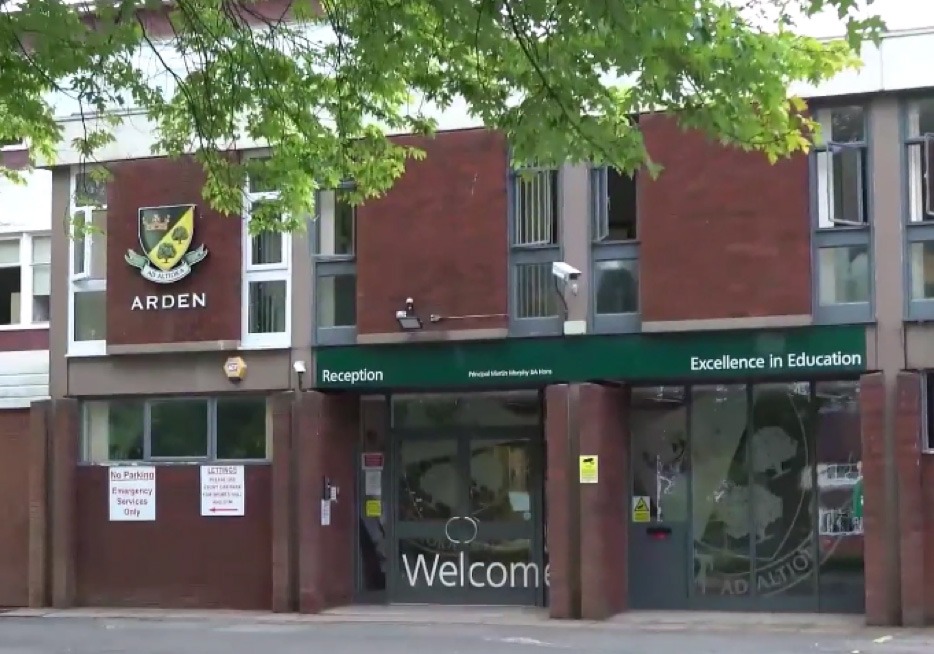
in partnership with

Rural PCN
This year, LWUK’s project with Solihull Rural PCN concluded after 3 years. A Health and Wellbeing Coach was embedded within Arden Academy to provide students with direct access to non-clinical, one-to-one health coaching. The project targeted a range of issues, including anxiety, depression, self-esteem, family concerns, eating disorders, self-harm, and emotional regulation, aiming to reduce the escalation of issues and the need for secondary care.
The goal of this was to empower students to take control of their health and wellbeing by fostering personalised, self-directed care. By providing early intervention through health coaching, the project sought to improve students’ mental and emotional health, equip them with coping strategies, and prevent the need for more intensive healthcare services later in life.
An average of 140 sessions were delivered per month, and over 450 students completed their series of sessions.
Listening Services
Delivered by


LWC worked closely with Karis Neighbour Scheme and Bethel Health & Healing Network to offer Listening Services to 620 clients.
Karis Neighbourhood Scheme’s Chaplains for Wellbeing offer listening and guidance to patients registered to one these practices: Karis Medical; The Wand Medical Centre; Bath Row Medical Practice; Bournbrook Varsity Medical Centre; Harborne Medical Practice Centre; Sherwood House Medical Practice or University Medical Practice. Over 400 sessions were delivered this year.
Bethel Health & Healing Network offered Rapha Listening Services for those aged 18+ looking for a ‘listening ear’. Clients could access up to 9 sessions either online, over the phone, video or in person. Over 300 sessions were delivered this year.

Healing Circles
Delivered by

LWC invested in and supported Consortium Member Pattigift to deliver the Healing Circles service to users from Black, African, and Caribbean heritage. This year, this service was accessed by over 1500 people.
Online Wellbeing Sessions


In partnership with Pilates at Your Desk, Living Well UK offered two free online wellbeing courses each week.
Move at Your Desk: Simple seated and standing movements that stretched the body, reduced pain, and improved posture.
Mat Pilates: Gentle strengthening exercises for the stomach, back, bottom, legs, and arms. The class was suitable for all levels and safe for those with back or
stomach muscle issues.
Over 1,100 people attended these sessions during the year, taught by Pilates teacher Kerrie-Anne Bradley.

LWC Staff Overview
LWC has an incredibly varied workforce due to the diverse range of services offered. As an organisation, the focus is on developing staff, both clinical and non-clinical, as they are LWC’s greatest strength.

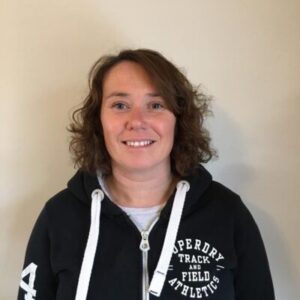









Growth of
Employee turnover rate of
LWC Staff Wellbeing
As an organisation that works to improve the mental health and wellbeing of the local community, LWC has always placed the wellbeing of its staff as a key priority.
In addition to LWC’s existing wellbeing package, this year, the following was implemented:
- Wellbeing Days – two days of leave per year that allows staff time to focus on their wellbeing.
- Company Closures – in summer and winter, an extended time off was given to all staff and the organisation was closed to prevent a build-up of internal work.
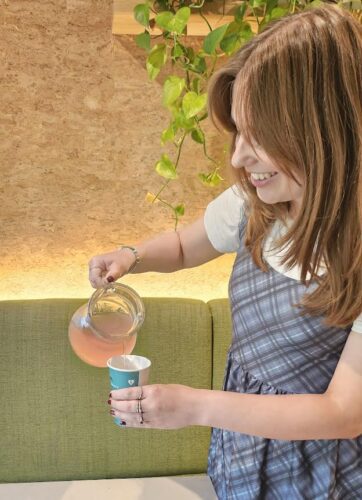
"The Wellbeing Days allowed me to step back and take a breather, when I felt stress building up. It encouraged me to listen to my body saying ‘hey if we keep going we might get sick, because I need a break’.
My employer giving me that kind of trust felt empowering and deeply respectful."
Claire Allerdissen, Digital Media Officer
"As the Wellbeing Days are separate to annual leave, they have enabled me to focus on my mental health and take what I need, whether that be a duvet day when life has felt a bit too busy or a day to be in nature during winter, when daylight is scarce outside of working hours.
As Wellbeing Assistant, I see in the people I support the importance of work-life balance. The Wellbeing Days show that LWC prioritises the wellbeing of staff and knows the importance of taking time for your mental health."
Ren Barnes, Wellbeing Assistant
"The wellbeing days have been so valuable for taking time out when it’s been needed and the closures, like those aligned next to existing bank holidays, create a longer break allowing me to properly recharge and reset. Both have had a positive impact on my overall wellbeing and productivity, allowing me to return to work refreshed and rejuvenated!"
Poonam Virdee, Clinical Operations and Administration Officer
Employment Satisfaction Survey:
This year, LWC hired a Trainee Champion whose role is to support trainees through their studies at Living Well.
This support is multi-faceted and is personalised to the trainee.
Trainees Overview and How we support them
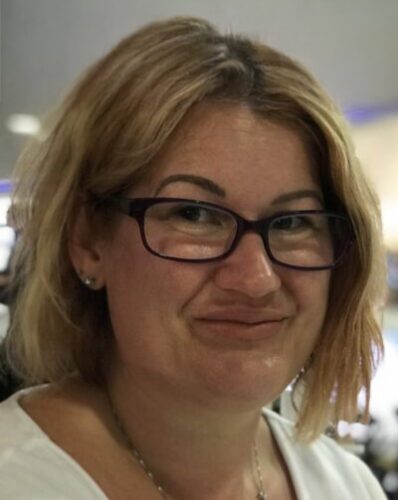
Jan Cowin
Senior Psychological Wellbeing Practitioner & Trainee Champion
This year, LWC hired a Trainee Champion whose role is to support trainees through their studies at Living Well.
This support is multi-faceted and is personalised to the trainee.

Sam Perry
Trainee Psychological
Wellbeing Practitioner (PWP)
Sam joined Living Well in August 2023 as a Clinical Referrals Administrator shortly after completing his MSc in Psychology and Psychological Practice at the University of Birmingham.
During his time at university, he had experience in inpatient clinical work that, although he highly valued, made him realise he wanted to work in a more flexible environment where treatment was client lead.
After a year in the admin team, Sam applied and successfully got onto the PWP traineeship with Newman University. He is currently focusing on assessments, which are going well, and he will move to treatment later in 2025.
Sam has found the support at Living Well really helpful, especially his supervision, both 1 on 1 and in groups. The PWP forum run by LWC’s Trainee Champion has also helped, and he finds the rotating guest speakers interesting and informative.
Sam is looking forward to continuing his training and plans on accessing all the support Living Well offers.

Vinell Martell-Corbett
Children’s Wellbeing
Practitioner
After completing her BA (Hons) degree in Working with Children, Young people and Families at Newman University, Vinell worked at a secondary school, and later a college, supporting children with social, emotional and mental health needs.
Through her work, she saw the effects of poor mental health in her community first hand and wanted to be more hands on in her support. When she saw the Children’s Wellbeing Practitioner course advertised at Living Well, she saw her opportunity.
During her training at Reading University, Vinell felt very supported by the central clinical team at LWC. When problems arose, such as the difficulties finding specific types of clients needed for the course, the team found solutions. Vinell credited ‘the open communication with case managers and during supervision’ as a large part of her success.
After completing her qualification, it was this support and care that made her choice to stay with Living Well easy. She knew the organisation cared about her and the clients. The opportunity to do work in the community was also a draw – since passing, Vinell and colleagues have delivered a workshop on Anxiety and Mental Health to a girl’s football club in Solihull, and there are planned sessions in primary schools.

